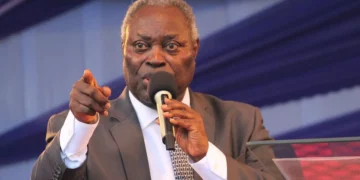I once spoke with a young man during a Safe Spaces conversation. Soft-spoken, brilliant, and barely in his late twenties, he was already a year into his recovery from drug abuse. “I didn’t start with drugs, he said. I started with pain. Emotional pain.” His words stayed with me because they stripped addiction of its stereotypes and revealed a deeper truth: before the pill, there was pain.
Many emotional reasons for addiction are deeply embedded in the complexities of health and wellness. It often begins with a physical illness, a loss, unresolved trauma, or mental exhaustion and if left unchecked, spirals into emotional imbalance. Eventually, this imbalance may take the form of a habit, a coping mechanism, or even a full-blown dependency on substances. This is why, before we address drug use, we must first ask a crucial question: What pain are we not confronting?
The Emotional Root Of Addiction
Addiction rarely happens in isolation. It often stems from an unmet need, a void many try to fill with substances like alcohol, opioids, cannabis, or prescription drugs. According to the National Institute on Drug Abuse (NIDA), individuals with mental health disorders are twice as likely to experience substance use disorders compared to the general population. This includes depression, anxiety, PTSD, and even prolonged grief.
The 2022 World Drug Report by the United Nations Office on Drugs and Crime (UNODC) revealed that over 296 million people globally used drugs in 2021, a 23% increase over the previous decade. In Nigeria alone, the National Drug Law Enforcement Agency (NDLEA) estimates that about 14.4% of the population aged 15–64, that’s over 14 million people, use drugs. What these numbers don’t always show is the unspoken emotional grief behind those choices. Addiction doesn’t just knock on the door. It sneaks in through unhealed wounds.
From Pain To Dependency: The Cycle
Many people begin with legitimate health concerns. A back injury. Insomnia. Post-surgery pain. Over time, the desire to feel better, physically and emotionally, can lead to misuse of prescribed medication or experimentation with illicit substances. And because these substances offer temporary relief, the mind becomes conditioned to seek that escape again and again.
When we suppress emotional pain without addressing its source, we only delay the explosion. Suppressed grief becomes anxiety. Unspoken trauma becomes addiction.
The Role Of Mental Health Awareness
Mental health awareness remains our strongest defense in the fight against addiction. Recognizing early signs of emotional distress, such as prolonged sadness, social withdrawal, irritability, or changes in sleep patterns, can help us intervene before a person seeks escape in harmful ways.
Therapy, counseling, peer support, and safe spaces are critical. Yet, in many communities, these are still seen as luxuries or “un-African.” The truth is this: emotional support saves lives.
Organizations like Mentally Aware Nigeria Initiative (MANI) and the NDLEA X Spaces community continue to foster dialogues and offer platforms where young people can talk openly about mental health and drug use. More is needed. We need empathy in homes, in schools, and in policies.
What Can We Do?
Invest In Emotional Health Early:
Parents, teachers, and caregivers must learn to ask, “How are you really doing?” Early intervention in childhood and adolescence can prevent years of silent struggle.
Promote Therapy, Not Shame:
Therapy should be as normal as a doctor’s visit. The NDLEA’s recent “Drop the Drug, Take Up Therapy” campaign is a step in the right direction, one that urges people to seek healing, not hide their wounds.
Recognize Triggers, Not Just Symptoms:
Rather than asking, “Why are you using drugs?” ask, “What happened that made you feel the need to?” This reframes addiction from a moral failure to an emotional wound.
Normalize Community-Based Healing:
Support groups, online communities like Health Situations, and faith-based counseling can bridge the gap for people who may not have access to formal therapy but need a listening ear.
A Call To Healing
Before the pills, there was pain. Before the need to suppress came the longing to be seen, heard, and helped. Addiction is not the beginning; it’s a consequence. That’s why we must do everything we can, therapy, awareness, conversation, education, and empathy, to address root causes before the symptoms spiral into crises.
So, let’s not wait for pain to find its voice in pills and powders. Let’s confront it while it still speaks softly. Healing begins with the courage to feel, to speak, and to accept help before the habit begins.





